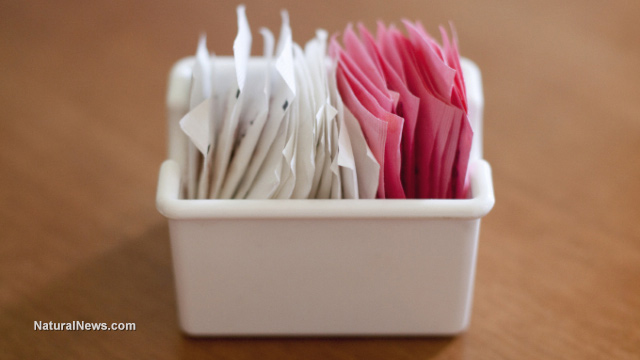Children’s consumption of artificial sweeteners has officially hit a 200% increase
02/24/2017 / By Vicki Batts

Artificial sweeteners are contentious ingredients that have been the subject of controversy for quite some time. It seems as if since the day they were introduced into the marketplace, their safety has been questioned. In spite of overwhelming concern, sugar substitutes have carved their very own niche in our society and have become a staple in many homes.
Unsurprisingly, an increasing number of adults and children are consuming artificial sweeteners. These non-nutritive substitutes are marketed as low-calorie, and few are able to resist the chance to have the cake and eat it too. However, the health consequences of these nefarious chemicals still remains something of an unknown.
Currently, several artificial sweeteners have been approved for use by the Food and Drug Administration (FDA). They are aspartame, sucralose, acesulfame-potassium, saccharin, neotame and advantame. Stevia is a natural low-calorie sweetener that is also FDA-approved. In spite of FDA approval, many people rightfully remain skeptical at the actual effects these chemicals may have on the human body.
The findings were recently published in the Journal of the Academy of Nutrition and Dietetics. A staggering 200 percent increase in artificial sweetener consumption among children was observed, while a 54 percent increase was seen in adults. This drastic increase was seen between the years of 1999 and 2012.
In a press release, the study’s lead author Dr. Allison Sylvetsky, an assistant professor of exercise and nutrition sciences at the George Washington University Milken Institute School of Public Health, said,”The findings are important, especially for children, because some studies suggest a link between low-calorie sweeteners and obesity, diabetes and other health issues.”
The power of the elements: Discover Colloidal Silver Mouthwash with quality, natural ingredients like Sangre de Drago sap, black walnut hulls, menthol crystals and more. Zero artificial sweeteners, colors or alcohol. Learn more at the Health Ranger Store and help support this news site.
This study offers some of the most recent stats on the consumption of low-calorie sweeteners in the form of food, beverages or packets for the United States’ population.
What is most concerning about the substantial increase in artificial sweetener usage among children is that the effects of long-term consumption on kids is entirely unknown. The Nutrition Source from Harvard’s School of Public Health recommends that children avoid consuming sugar substitutes for this very reason.
To conduct their study, the research team disseminated data from the National Health and Nutrition Evaluation Survey (NHANES) from 2009 to 2012, and compared their analysis to a previous study that used data from 1999-2008. In total, data from some 17,000 people was analyzed.
More specifically, the scientists reviewed survey results from two dietary interviews in which participants were asked to recall what they ate and drank during the previous 24-hour period. This, of course, comes with many inherent drawbacks. Regardless, their analysis revealed that 44 percent of adults and 20 percent of children were consuming sugar substitutes more than once a day.
Interestingly enough, the team noted that the amount of low-calorie sweetened foods and drinks consumed actually increased with body mass index. Previous studies have also indicated that consuming artificial sweeteners may actually increase your risk of diabetes, obesity and other health issues.
The team also discovered that some children as young as two-years old were reportedly consuming artificial sweeteners, either in food or drink. Given that the data collected was self-reported, it is very possible that the number of adults and children consuming artificial sweeteners could be much higher than indicated.
The study authors noted that some parents may not understand that labels indicating “light” or “no added sugar” could mean a product contains a low-calorie sweetener. It’s also possible that many people do not understand that those ingredients are not inherently healthier than natural sugar.
In their news release, the team advised parents to follow federal dietary guidelines, recommendations that include limiting consumption of added sugars. Sylvetsky also suggested, “Drink water instead of soda. Sweeten a serving of plain yogurt with a little fruit.”
“And don’t forget an apple or another piece of fresh fruit is a great snack for both kids and adults.”
One thing is for certain: we, as a country, need to stop being so reliant on artificial sweeteners, and start eating more whole foods.
Sources:
Tagged Under: artificial sweeteners, children's nutrition, United States




















